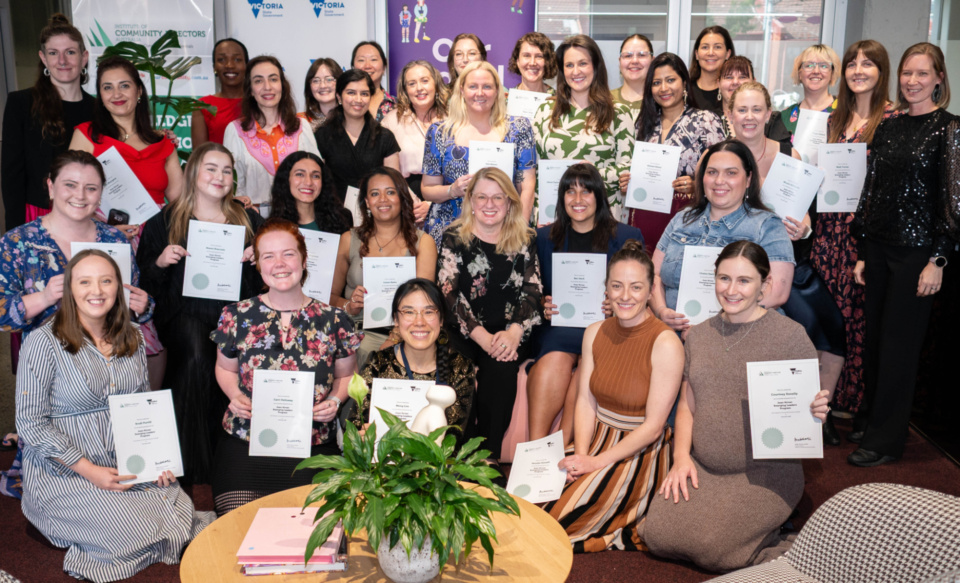
What not-for-profit leaders need to know in 2026
Posted on 12 Feb 2026
Our special NFP trends report distils the views of more than two dozen experts.
Posted on 13 Nov 2024
By Matthew Schulz, journalist, Institute of Community Directors Australia

Australia’s fundraisers are on the cusp of formal recognition for their unique skills, which if successful will create a big boost for the profession.
After a four-year campaign, Fundraising Institute Australia (FIA) is hopeful that fundraisers will be added to the national list of occupations by December.

Currently, fundraisers are classified under “business, human resource and marketing professionals”, a categorisation that FIA chief executive Katherine Raskob said underplays her members’ skills and knowledge.
The new Occupational Standard Classification for Australian (OSCA), managed by the Australian Bureau of Statistics (ABS), is due for release on 6 December after a $23.7 million revamp, replacing a 20-year-old list.
The updated classification describes all occupations in the country and is used to design educational pathways, manage skilled migration and develop workforce strategies.
The review is expected to also affect the following sectors, several of which involve not-for-profits and charities:
In many cases, proposed changes have significantly expanded the job descriptions, skills and tasks of these professional areas.
“How is a profession that is responsible for raising billions of dollars for the neediest in our communities, our society, our country and the world not afforded a classification in the ABS’s own jobs dictionary?”
While an ABS media spokesperson said "we can't confirm what occupations will and won't be included until the final decision is announced", Raskob said FIA’s most recent talks with the authority had been promising, and those authorities “now appeared very interested and open to considering changes to the classification”.
“It’s an exciting development and we’re cautiously optimistic as we await further news on when and how this will progress.”
Raskob said it made no sense that fundraising was not a separate occupation given the $13.9 billion given to charities each year.
“How is a profession that is responsible for raising billions of dollars for the neediest in our communities, our society, our country and the world not afforded a classification in the ABS’s own jobs dictionary?”
Ms Raskob hoped the listing would help address a “critical” national skills shortage in the sector by attracting talented people, including overseas workers.
The head of FIA membership and marketing, Sally Shepherd, a long-time professional fundraiser, said fundraisers need a large skill set, including strong donor relationship building, exceptional communication skills, adherence to high ethical standards, the ability to craft “audience-centric marketing” aimed at many donor “personas”, and the ability to tell great stories that connected with donors. Fundraisers should also be skilled in strategic planning and campaign management, be able to conduct detailed data analysis, have excellent digital and social media skills, be able to conduct and manage events, be able to solve problems creatively, be financially literate, understand philanthropic trends, and display perseverance in the face of a tough fundraising environment, she said.
Shepherd said many skills from other professions were transferable to not-for-profit fundraising, and people wanting to break into the field should develop skills in areas such as communication, relationship management, and data analysis. She said they should also seriously consider professional training and FIA courses. Often, volunteering could provide insights into the field, she said, as could attending the FIA conference and similar events, making industry connections or recruiting a mentor.
She said successful fundraisers needed a strong commitment to mission-driven work and should keep themselves informed of fundraising trends.
Updating the Australian and New Zealand Classification of Occupations (ANZCO)
Human resources help: Follow these links to access tools, help sheets, templates and policies: Recruitment, induction and succession | Performance management | Organisational culture | Diversity | Child safety | Paying board members

Posted on 12 Feb 2026
Our special NFP trends report distils the views of more than two dozen experts.

Posted on 10 Feb 2026
As my family dropped our teenage son off at the airport in the first week of January to embark on a…

Posted on 11 Dec 2025
Community Directors trainer Jon Staley knows from first-hand experience the cost of ignoring…

Posted on 10 Dec 2025
As a qualified yoga instructor who learned the practice in her hometown of Mumbai, Ruhee Meghani…

Posted on 10 Dec 2025
Anyone working in an organisation knows it: meetings follow one after another at a frantic pace. On…

Posted on 10 Dec 2025
Stressed, overwhelmed, exhausted… if you’re on a not-for-profit board and these words sound…

Posted on 10 Dec 2025
The Institute of Community Directors Australia trains over 22,000 people each year, which gives us…

Posted on 03 Dec 2025
Many not-for-profit (NFP) board members in Australia are burnt out, overwhelmed and considering…

Posted on 26 Nov 2025
A roll call of Victoria’s brightest future leaders has graduated from a testing and inspiring…

Posted on 12 Nov 2025
At the Institute of Community Directors Australia, we believe that stronger communities make a…

Posted on 12 Nov 2025
Like many Community Directors members, Hazel Westbury is a community leader who isn’t easily…

Posted on 11 Nov 2025
I’ve seen what happens when fear of conflict wins out over taking a principled stand.